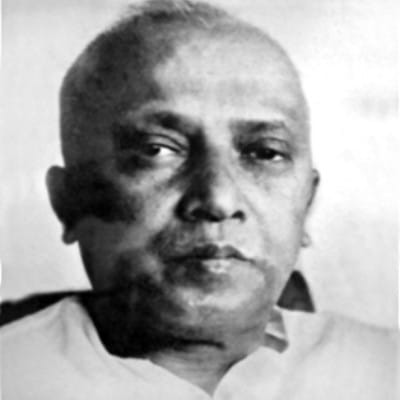Abdus Salam: The editor who laid the foundations of English journalism in Bangladesh

The 44th death anniversary of Abdus Salam, editor of the English daily Bangladesh Observer (formerly Pakistan Observer), on February 13, went past quietly, unnoticed both by the press circle and civil society. This amounts to disparaging the contribution of a pioneering elder in the profession who had virtually laid the foundations of our nascent English journalism and brought it to a solid footing. It is more often than not we tend to forget our heroes, which in terms of historical perspective is an obvious fault line in our culture. Such anniversaries provide meaningful perspective to the legacies and challenges they faced in discharging their obligations to society.
Abdus Salam, formerly a member of the pre-Partition Audit and Accounts Service, joined Pakistan Observer as its editor after a stint at a teaching job at Jagannath College. He transformed the paper into one of the most influential dailies in the south-east region. The paper emerged as the flagship of our English dailies, its circulation soaring much higher than its peers.
He was ably served by star journalists like Obaidul Haque, SM Ali (Founder-Editor of The Daily Star), Razia Khan, ABM Musa, Enayetyllah Khan (Founder-Editor of The Holiday), Ataus Samad and Abdul Matin, amongst others. I count myself lucky to have started my career in journalism under an editor of his calibre.
Abdus Salam wore his intelligence lightly; his simple, casual way of dressing disguised a high intellect in his writings. He would never waste words or lose the thread of arguments in flowery language. He would go straight to the heart of the matter. The beauty of his writing was that he could explain issues that would not lend to readers so easily, in a language intelligible to average readers. To his job, he brought a sharp, probing intelligence and elegant prose that made him one of the finest journalists of his generation. He was a voracious reader, contemplative and modest, whose idealism and gentle sense of humour left a lasting impression.
He was a cool operator, but this masked his passionate hatred against any injustice or inequity. He never hesitated to take up his pen to oppose any discrimination against the people by the Pakistani rulers. He was the first among the editors in former East Pakistan to court arrest and was jailed for one year for supporting the Language Movement through his writings. Beyond his calling as an editor, Abdus Salam held the post of the President of the Editors' Guild of Pakistan. He was also the Founder-Directer General of the Bangladesh Press Institute.
Abdus Salam is a recipient of the Ekushey Padak for his contributions to journalism. He was combative and often misunderstood for his outspokenness—never shying away from championing the causes of the people of the then East Pakistan. The images he painted through his columns remain firmly ensconced in the popular imagination of his readers.
SM Ali, the Founder-Editor of The Daily Star, rated Abdus Salam as one of the top three editors of former Pakistan, along with Altaf Hossain and ZA Suleri, and wrote separate pieces on them.
Abdus Salam's contributions to journalism, and to the founding of the National Press Club, along with co-editors Tofazzal Hossain Manik Mia, Zahur Hossain Chowdhury and Mujibur Rahman, were of great consequence. To remember his role in founding the National Press Club, it would be a welcome gesture to dedicate a section of the club in his memory. The Topkhana road in front of the National Press Club could also be renamed as Abdul Salam road, which had been suggested on the past death anniversaries of Abdus Salam.
Beyond his family circle, civil society surely has the responsibility to remember the legendary editor who served our society and the entire nation at a critical juncture of our history, with a commitment that he never compromised.
Syed Badrul Haque, formerly Press Secretary to the President of Bangladesh with a stint in print and electronic media, is a contributor to The Daily Star.

 For all latest news, follow The Daily Star's Google News channel.
For all latest news, follow The Daily Star's Google News channel. 



Comments